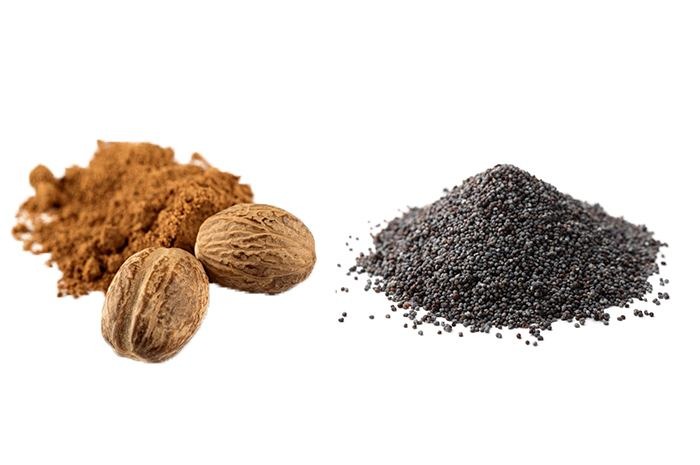Will Nutmeg Or Poppy Seeds Really Get You High?
It's human nature to crave a temporary alternate state of reality. Kids twirl around to get dizzy, teens smoke cigarettes, and adults drink alcohol, but can common ingredients like nutmeg and poppy seeds really get you high?
Nutmeg is a spice native to Indonesia that is commonly used in Southeast Asian and Middle Eastern cuisines and is part of that familiar flavoring known as "pumpkin spice." It contains myristicin, a substance chemically similar to the hallucinogenic-inducing compounds found in mescaline. Sprinkling small amounts of nutmeg on your eggnog or pumpkin pie isn't going to make you trip, but ingesting between 5 and 15 grams (about 3 to 9 1/2 tablespoons) of nutmeg can result in dizziness, anxiety, and hallucinations. Keep in mind that ingesting too much nutmeg won't result in some great, life-changing epiphany, but it will almost certainly make you sick. (Incidentally, the spice is highly toxic to dogs, so no eggnog for Fido.)
Poppy seeds contain trace amounts of morphine, which is chemically similar to the dangerous narcotic, heroin. The morphine content in poppy seeds ranges, but some varieties, such as Spanish poppy seeds, are strong enough to provide a full dose of morphine. According to one estimate out of the Journal of Forensic Sciences, it would only take around 40 grams of Spanish poppy seeds (around 5 tablespoons) to equal a 10-milligram dose of morphine. Eating a poppy seed bagel or muffin for breakfast won't put you in an opium-induced state of euphoria, but it still might cause you to fail a drug test. An episode of Discovery Channel's MythBusters showed that one of the hosts, after consuming two poppy seed bagels, tested positive for opioids.
